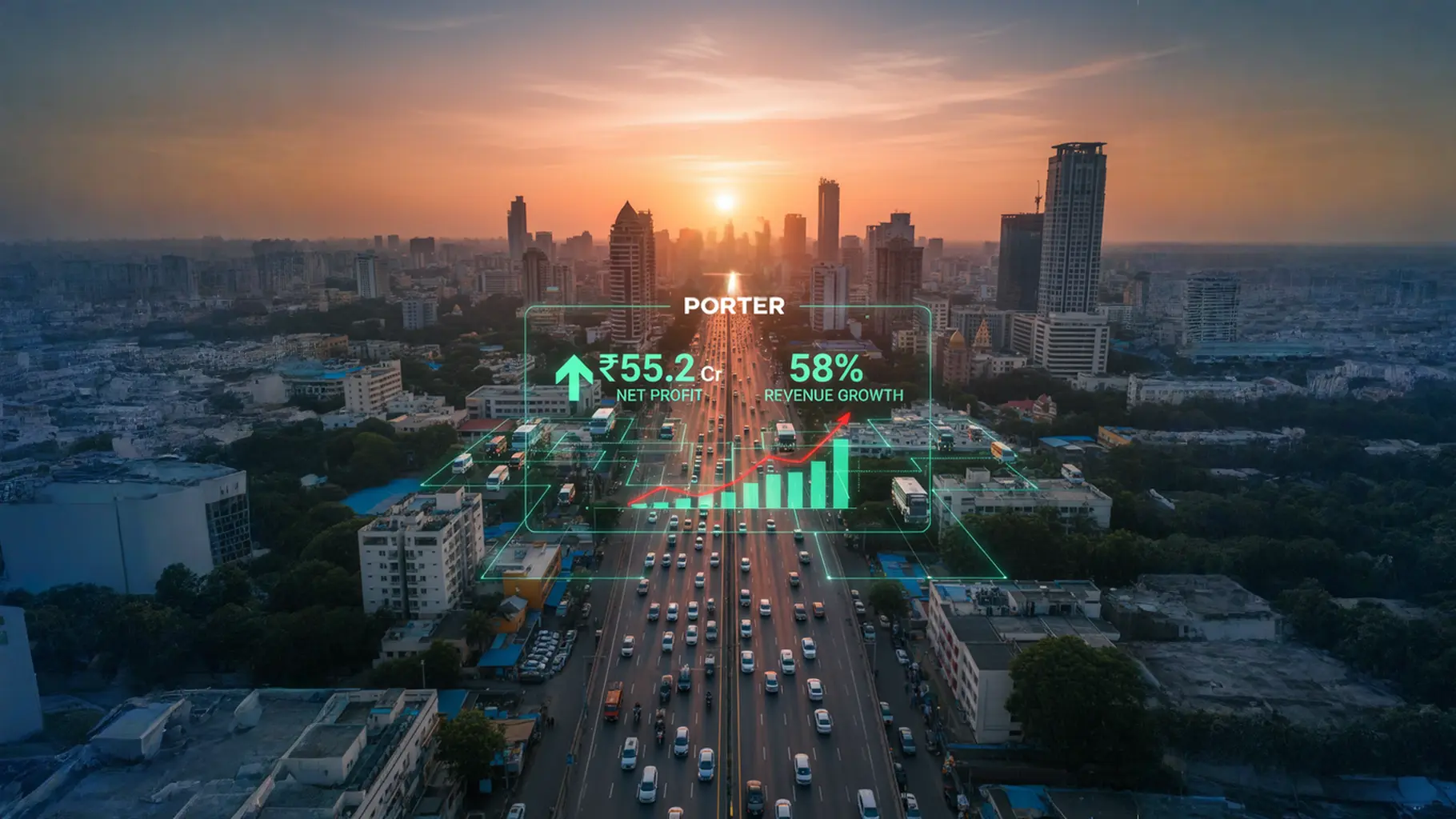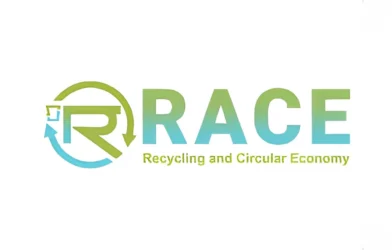Bengaluru, March 2025 — Logistics unicorn Porter has announced a major financial milestone: the company turned profitable in FY25, driven by rapid top-line growth and a sharp improvement in margins. The startup reported a consolidated net profit of ₹55.2 crore in FY25, marking a turnaround from a loss of ₹95.7 crore in FY24.
The achievement underscores its ability to not only scale rapidly but also transition toward sustainable profitability in one of India’s most competitive sectors — urban logistics and last-mile delivery.
Surging Revenues Drive Profitability
Porter’s revenue from operations surged nearly 58% year-on-year, reaching ₹4,306.2 crore in FY25. This was a substantial jump from ₹2,733.7 crore in FY24, reflecting both robust demand for intra-city logistics services and the company’s success in expanding its partner driver ecosystem.
The bulk of its revenue continues to come from its core services — delivery of goods by partner drivers to customers across metros and tier-1 cities. This model has enabled the company to scale quickly, leveraging the surge in e-commerce, hyperlocal delivery, and small-business logistics requirements.
Business Model and Operations
Porter operates on a revenue-sharing model, wherein the company charges up to 30% of the billed amount, depending on the location and service type. This model ensures:
- Steady income for partner drivers, who form the backbone of Porter’s network.
- Scalability for Porter, as the company earns consistently with each transaction without having to own physical delivery fleets.
- Flexibility for customers, ranging from SMEs to individual users, who can choose services suited to their needs.
This asset-light model, combined with strong demand, has allowed Porter to grow without heavy capital investments, while simultaneously pushing toward profitability.
Profitability Milestone
The transition from a nearly ₹96 crore loss in FY24 to a ₹55 crore net profit in FY25 is being hailed as a significant turning point for the company.
Analysts note that this reflects:
- Improved operational efficiencies, with better utilization of partner drivers.
- Higher average order values, as Porter expanded into diverse use cases like SME logistics and commercial deliveries.
- Strong cost discipline, where digital optimization of routes, payments, and driver management reduced expenses.
With profitability achieved, Porter joins the ranks of rare Indian unicorns that have demonstrated sustainable financial performance in a startup ecosystem still dominated by loss-making growth stories.
Factors Behind Porter’s Growth
Several factors contributed to Porter’s strong FY25 performance:
- E-commerce Boom: Continued expansion of online shopping boosted demand for reliable, intra-city delivery solutions.
- SME Adoption: Small and medium enterprises increasingly turned to Porter for affordable logistics support, especially for last-mile operations.
- Tech Integration: Digitization of operations, including route planning, driver assignment, and payments, streamlined costs.
- Urban Expansion: Porter’s growth in tier-1 cities and metros provided scale and consistency in order volumes.
The Unicorn Edge
Founded in 2014, Porter has emerged as one of India’s most successful logistics startups. Over the years, it has raised substantial funding from marquee investors, scaling operations across multiple cities. Its asset-light approach, combined with a massive driver-partner ecosystem, has positioned it uniquely in India’s crowded logistics space.
Unlike traditional logistics players with heavy asset ownership, Porter thrives on its technology-first approach. The company’s mobile app has become a go-to platform for SMEs, retailers, and even individuals needing quick, reliable goods movement within cities.
Market Landscape: Logistics in India
India’s logistics sector is valued at over $400 billion and is projected to grow at a CAGR of 8–10% over the next five years. Within this, intra-city logistics and last-mile delivery have become some of the fastest-growing segments.
The demand is driven by:
- Growth in e-commerce and online grocery services.
- Rapid urbanization and increased mobility of goods.
- A rise in small businesses needing logistics partners.
Porter, with its digital-first approach and focus on affordability, has managed to capture a significant slice of this market.
Challenges Ahead
While FY25 has been a breakthrough year, Porter faces challenges that could test its resilience:
- Rising Competition: Startups like Shadowfax, LetsTransport, and even e-commerce giants investing in their logistics arms.
- Fuel Costs: Volatility in fuel prices can affect partner driver earnings and profitability.
- Regulatory Oversight: As gig economy platforms come under scrutiny for worker rights, Porter may face higher compliance costs.
- Sustainability Push: With increasing focus on green logistics, Porter may need to accelerate EV adoption within its driver network.
Looking Ahead
Porter’s management has indicated plans to deepen its presence across India’s tier-2 cities, catering to small businesses in growing urban centers. The company is also exploring technology upgrades, including AI-based route optimization and enhanced digital onboarding for drivers.
With profitability now achieved, Porter is expected to attract further investor interest. Its long-term strategy includes building a sustainable logistics ecosystem that balances growth with profitability, while tapping into India’s rising demand for reliable urban delivery solutions.
Conclusion
Porter’s turnaround in FY25 is not just a financial milestone but a symbol of the maturing Indian startup ecosystem. The company’s ability to scale rapidly, achieve profitability, and sustain driver partnerships highlights its resilience and business model strength.
With revenues surpassing ₹4,300 crore and net profits of over ₹55 crore, Porter has proven that Indian unicorns can indeed strike a balance between growth and profitability. Going forward, its challenge will be to maintain this momentum while expanding into new geographies, adopting green logistics, and fending off competition.
If successful, Porter could set the benchmark for profitable growth in India’s logistics startup space, paving the way for other unicorns to follow.
Disclaimer: This article is based on information available from public sources. It has not been reported by EQMint journalists. EQMint has compiled and presented the content for informational purposes only and does not guarantee its accuracy or completeness. Readers are advised to verify details independently before relying on them.









